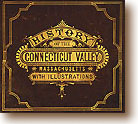
The Holyoke Transcript.
The files of the local papers since 1848, published by this establishment, are carefully preserved in the Transcript office. It has been the aim of the publishers of the Transcript to make a good local paper. It seeks to-day to honestly give a complete and true record of local events, and to comment freely upon local needs. Its files contain such a history of the rise and progress of town and city as can nowhere else be found, and it has been generously been supported by the citizens of Holyoke.
The Transcript has published, from time to time, illustrations and descriptions of the noteworthy buildings and enterprises of the city, and histories of its churches, manufactories, and worthy institutions. It is the popular advertising medium of the merchants of the city, and has a large circulation among former residents in other towns and states.
The Transcript is published semi-weekly, Wednesdays and Saturdays. It was established in 1863, the first number appearing April 11 of that year. It was published weekly during nine years. In April 1872, the first number of the Wednesday edition was issued, and it has been a semi-weekly from that date. The Saturday edition of 1863 was a 24-column folio sheet, 22 inches by 31 1/2 inches, the same size as the present Wednesday edition. In April it was enlarged to 28 column, 24 by 35 sheet. In August, 1868, another enlargement was made, this time to a 27 by 40 sheet, of 32 columns. In April 1870, it was enlarged to 48 columns, and was printed on a sheet 31 1/2 by 44 inches, and in the present quarto form. The founders of the Transcript were Messrs. Henry M. Burt and C.H. Lyman. In August, 1864, Mr. Lyman purchased Mr. Burt's interest and conducted the paper until Feb. 11, 1871, when Mr. E.L. Kirtland purchased an interest, and the firm of Lyman and Kirtland published the Transcript until May 1, 1873, when Mr. Lyman sold his interest to Mr. W.S. Loomis. In August, 1875, Mr. Kirtland retired, selling his half of the establishment to Mr. Loomis, who has been sole proprietor since that time.





